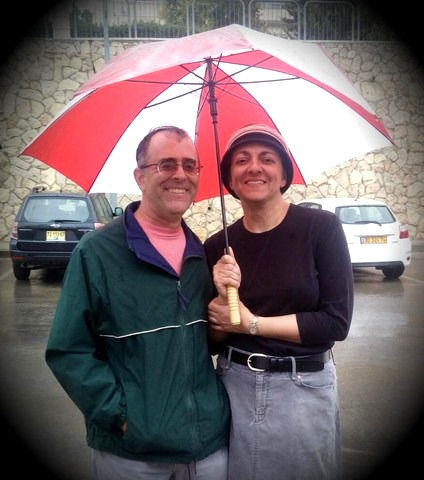WEATHER: Antibiotics During A Polar Vortex Break-Up
- Dr. Barry Lynn
- Feb 4, 2019
- 3 min read

Frost on the Judean Hills by Dr. Barry Lynn
Temperatures have begun a steep climb, which will have many folks saying: "There ain't no more winter here." In a sense, they would be correct. As noted in previous articles, the break-up of the polar vortex has broken our string of rainy weeks and chilly weather and we've been for the most part under the influence of high pressures ridges, one of which brought us a beautiful Shabbat and will bring us warm southerly breezes this week.
However, they say the bigger the wave the bigger they break. While technically true, we're referring to winter wave patterns rather than summer wave patterns when the only thing breaking are waves on the beach. The timing for this "breaking" atmospheric wave should be the end of next week and/or early the following week.
It's not really a breaking wave, but rather the possible arrival of a deep and cold trough of air following the "ridge" in the wave pattern that could turn us back towards winter, at least for a few days. In a sense, the stronger the ridge, the stronger the trough on its backside.
Ever since the break-up of the polar vortex, things just haven't been the same for me. Besides the loss of popularity and interest in the weather (let alone myself), strange things have been happening — at least to me. It started out not so innocently enough with a missing (green) sweatshirt. This is a sweatshirt I never take off outside of the house, yet it is not to be found anywhere at all. At the same time, an old meant-for-cleaning skirt of my wife's disappeared.
These events were followed by numerous pieces of silverware dropping from plates, bowls, etc., culminating the other night in the screams of a glass cup shattering on the floor. Today a wind-blown kippa went sailing from my head only to land in the only puddle of water around — and leftover cleaning water at that.
I can understand the other things happening, but the last shouldn't happen to me. It got so bad I sent my (brave) daughter to the basement to see if there was some malicious person conducting some electromagnetic wave bending experiments. Come to think of it, I haven’t heard back from her...
And then there's the question of whether to take an antibiotic for a sinus infection. From what my doctor tells me: "Real men don't take antibiotics." (If you're a feminist, then real women don't take them either). Rather than the question being how long do you wait before taking them, you begin to wonder if you've got what it takes to save the world from the over-prescription of antibiotics. If you don't, you might feel better, but you'll definitely feel guilty. Everyone you see seems to say: "If you just waited another miserable day you would have gotten better on your own."
We all know that the over-prescription of antibiotics has led to an increase in resistance to antibiotics — if not a complete insensitivity to them among our most dangerous "super bugs." However, there is another reason that we should treat the bacteria within us (or microbiome) with greater respect. It turns out that our diet (if not the antibiotics we take) affects the microbiome composition in our small intestine. These bacteria don't just help us digest last night's "veggie burger," they are able to send signals through the nerve endings of our intestines all the way to our brains. These signals have been shown to influence brain development, and even the development of brain disease — perhaps even Alzheimer's — depending on your diet.
So, when you ask yourself if you're a "real" man (or woman), don't forget to ask yourself who's really calling the shots. When they say you "feel it in your gut," we should consider taking this literally.
Image credit: The Jerusalem Herald

Dr. Lynn is a lecturer at The Hebrew University of Jerusalem, Earth Sciences Department. He is also CEO of Weather It Is, LTD, a company that specializes in reducing weather risk. Click here to read more of this writer’s work in The Jerusalem Herald.

































Comments